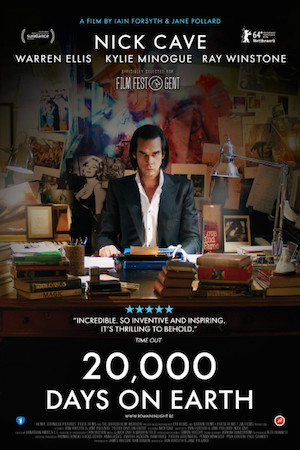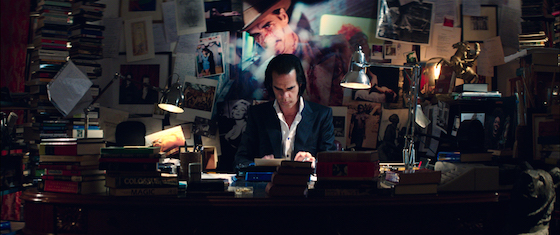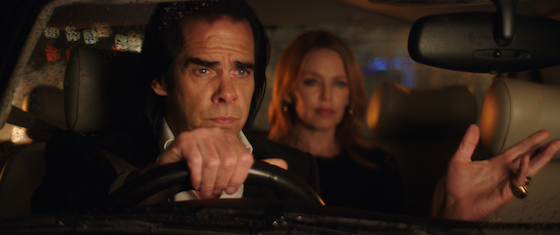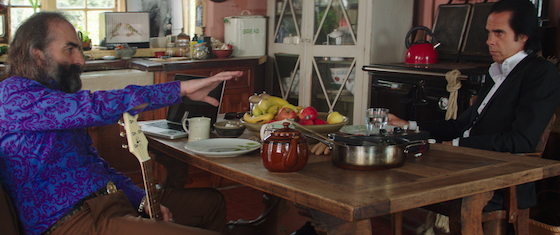 [Minor Rock Fist Up]
[Minor Rock Fist Up]
“My muse is not a horse and i am in no horse race and if indeed she was, still i would not harness her to this tumbrel – this bloody cart of severed heads and glittering prizes. My muse may spook! May bolt! May abandon me completely!”
The above letter was written by singer/songwriter/author/raconteur Nick Cave in an open letter that he penned to MTV in 1996 as a response to being nominated for a Best Male Artist award.
Cave’s concern about spooking his muse, that is, losing his grip on a creative process that he doesn’t quite understand in the first place — is at the heart of 20,000 Days On Earth, a faux-documentary about how Nick Cave spent his 20,000th day.
The film, which is beautifully shot and arranged by directors Iain Forsyth and Jane Pollard, isn’t short on pretense. Cave narrates his own story with voiceover that sounds like a combination of stilted film noir dialog and stage instruction. There are clearly rehearsed gags that never feel organic and multiple times he refers to himself on stage or the creative process as godlike. But these unsuccessful moments are tempered by some truly revealing ones.
A conversation with Cave and Ray Winstone about the highs and lows of performance is brilliant and revealing. As is a car ride with Kylie Minogue. Where the two Australian performers talk about working the crowd, their fears of being forgotten and Michael Hutchence. How much of these scenes are genuine and unscripted is something only the cast and crew know, but regardless, it makes for compelling film.
The glimpses into the recording process is a fan’s dream, particularly a scene where Cave visits multi-instrumentalist and longtime collaborator Warren Ellis. Cave’s scenes with the band make it clear that he’s learned how to tame his muse: He’s stopped revering the process as a mystical creature and instead regards it as a craft, as a job. As labor.
While that may sound like an unexceptional way to regard the creative process, the opposite is true. It takes concentrated effort to make ideas real, to bring music or any art form into being and as the film reveals, Cave has learned that. 20,000 Days on Earth is a nebulous, beautifully shot and edited film that doesn’t shy away from Cave’s less seemly traits. It serves as a retrospective, a memorial, a huge pat on the back and an unflinching look at the creative process. At its worst, it’s boring and self-important. At its best, it’s transcendent and powerful.







Comments on this entry are closed.